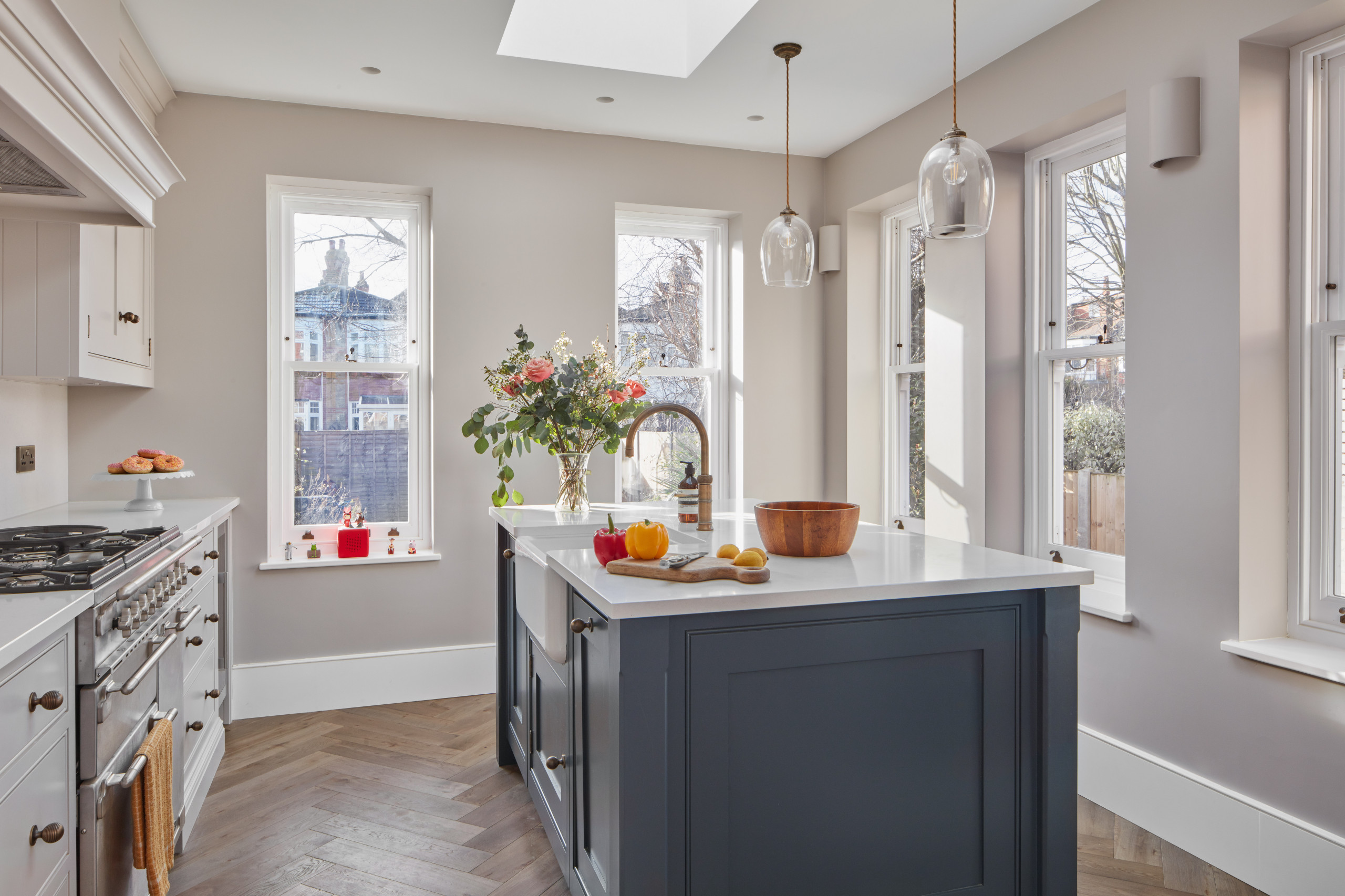How to choose a contractor

Choosing a contractor or tradesperson for your project is one hugely important and can often feel a little daunting. Charlie has shared her tips and tricks to help make this process a little less daunting.
How can you go about finding reliable tradespeople?
There is no one trick to finding tradespeople who are the perfect fit for your project, but there are steps that you can take to find those who are the right fit for you.
Firstly ask for recommendations from people you trust, a quality tradesperson will have a reputation to match. Alternatively you can reach out to a contractor who offers consultancy services. When I launched BUILD by Charlie I created the consultancy offering to support homeowners with the aspects of their projects they wanted support with. This allows me to offer peace of mind to clients where they need it - such as choosing and setting up relationships with trusted tradespeople.
If you do not have someone that you can ask for a recommendation and you are choosing from suppliers you have researched then ask to speak to some of their clients, to see client testimonials or if they have any case studies they can show you. You could also ask if they would be willing for you to visit the project in person, a reliable tradesperson will always be happy to show you examples of their previous work.
If you speak to previous clients be sure to ask them questions that will give you a feel for the supplier, such as:
- What was their overall impression of the provider?
- Were they polite and professional?
- Did they keep the work site tidy?
- Did they deliver the project on time and within budget?
- How well did they manage other trades?
- Were any unforeseen problems communicated quickly and professionally?
Are there any qualifications and certifications you should look for? And how can you assess a tradesperson's experience and reputation?
Different trade sectors will have qualifications or quality assurances that you can check. For example, if your project will involve the fitting of gas appliances or moving of supply lines for example, be sure that your provider holds the relevant Gas Safe accreditation. If they do, they will be able to show you a valid certificate or relevant proof that they are qualified for the job.
For added peace of mind you can always ask to speak to previous clients, check out reviews of a tradesperson on sites such as checkatrade.com, Google reviews or on Houzz. A few moments spent online could save you from a nasty shock.
What questions should you ask during the initial consultation?
- Do you have valid insurance?
- Do you have relevant qualifications?
- When could you start the project and what is your projected timeline?
- Would you be willing to put a contract in place and a schedule of works?
- Have you undertaken similar projects?
- What experience do you have?
- Can you provide references / can I speak to previous clients?
- How will the project be managed?
- How will we communicate?
- How would you resolve a dispute?
- Do you offer a guarantee on works?
- Will you provide quality assurances for materials and products used?
Project budgets are often one of the trickiest things to manage. How can homeowners determine which tradespeople are in their budget and which quote offers value for money?
Price isn’t everything, sometimes simply opting for the cheapest quote can leave you facing problems or unforeseen costs further down the line. To avoid this get at least three quotes from different suppliers and get them to talk you through what is included, payment schedules and any of the finer details. This will allow you to understand who is really offering you value for money, or whether the initial ‘saving’ is the result of using lower quality products or less experienced tradespeople, which could cost you more money in the future if any problems need fixing. A reputable contractor will always be happy to have an open honest conversation and share product details, quality assurances and use specified products when asked.
Are there any red flags to watch out for?
There are a number of red flags that you should look out for, but fundamentally if a tradesperson is unwilling to provide references, case studies or evidence of their previous works this should set alarm bells ringing.
If they do not want to put a contract in place this is a major red flag. A reputable contractor will always offer their customers a written contract as it serves to protect both parties moving forward. This contract should clearly set out the expectations, responsibilities, and terms of the work to save any confusion in the future. It will ensure transparency between you and the builder, so you know exactly where you are with the project. If the builder is supplying materials e.g. windows, make sure the document references exactly what they are providing. For example, if you are expecting timber rather than UPVC.
By having a contract that clearly communicates a payment schedule, it will help both you and the builder to manage cash flow and finances.
